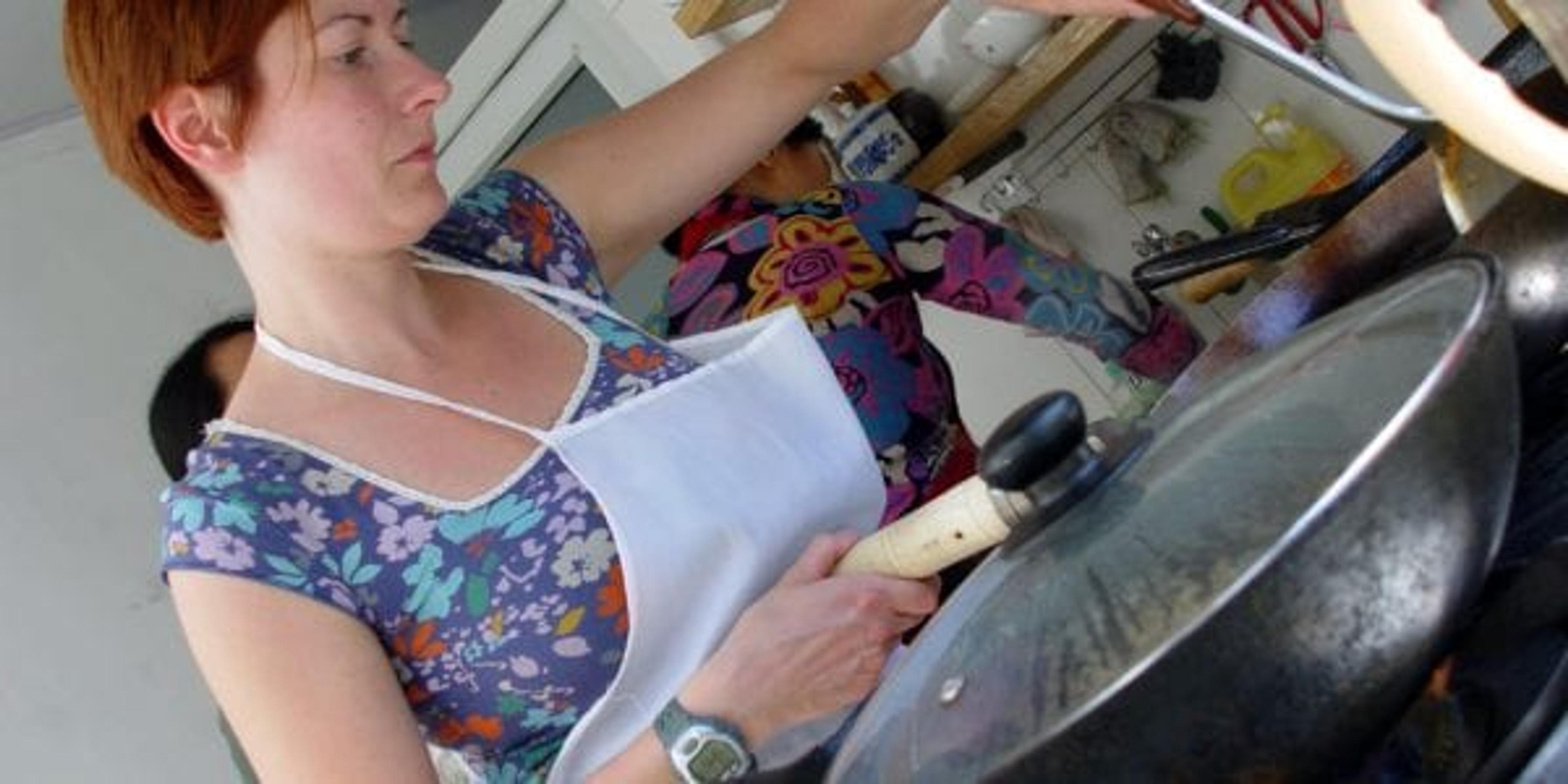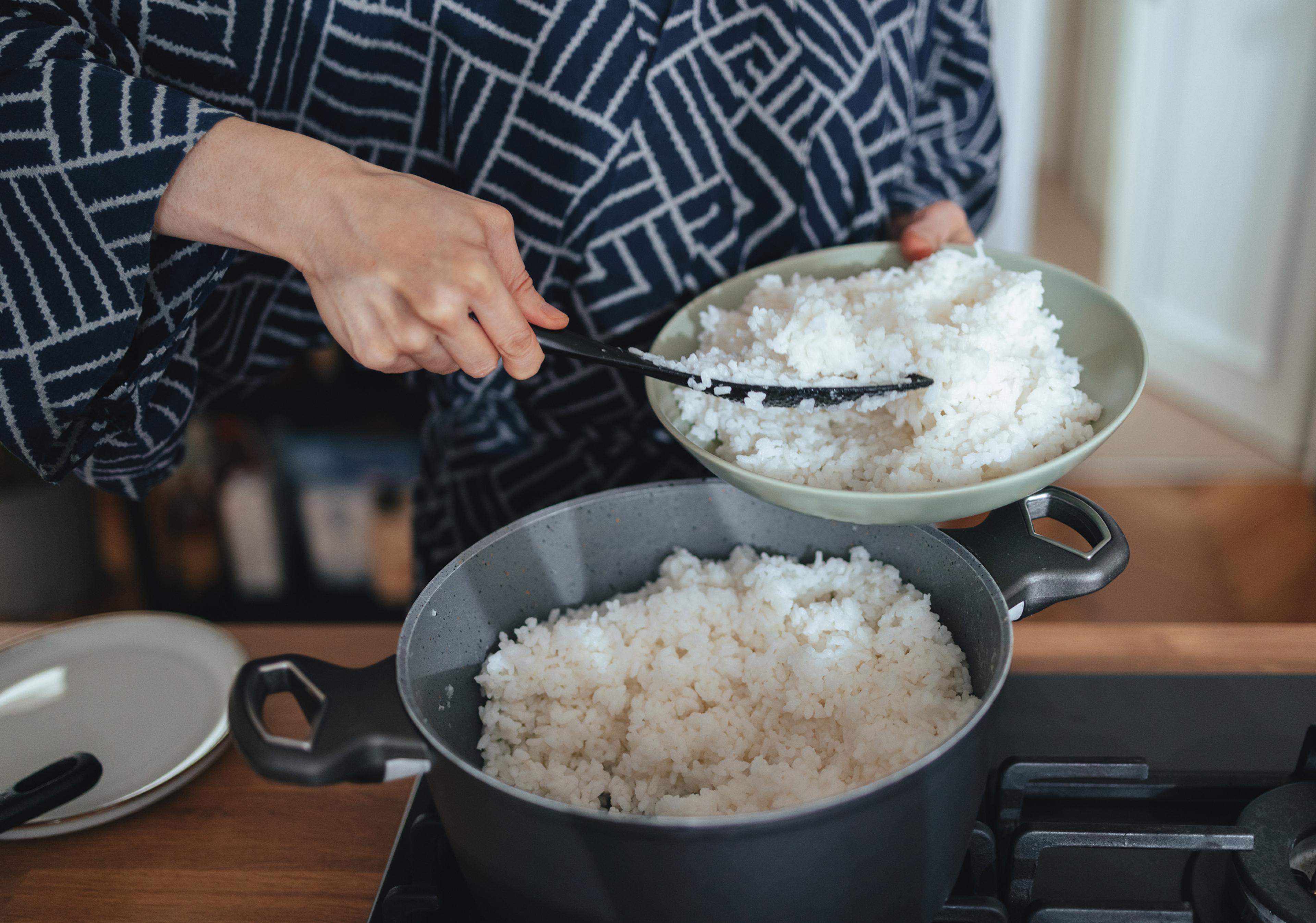Cooking mistakes that might cause weight gain

Kristin Coppens
| 3 min read

Trying to lose weight and have a healthier lifestyle can be a frustrating endeavor for some individuals. One can eat healthier, exercise, and minimize eating out at restaurants, but still be unable to lose the desired amount of weight. Instead of feeling discouraged, or thinking the goal in unattainable, it might be beneficial to take a second look at how the meals made in your own kitchen might be playing a role.
When cooking, there are small steps most individuals take that may just be holding those weight loss goals at bay and adding hidden calories to your diet. By tweaking a few things that you might not be completely aware you are doing, those pounds could start coming off.
- Oil: Though it’s common knowledge that olive oil is one of the ‘good’ fats, it can still pack a caloric punch to your meal. Just one tablespoon of olive oil is approximately 120 calories. When you pour olive oil into a pan for cooking, that estimation can end up totaling three or four times more.
- Serving Sizes: One of the biggest proponents of weight gain and an unhealthy lifestyle is using estimation for serving sizes instead of the measured recommended portions. Nonetheless, actually using the tools to measure each portion and each meal or snack that you consume is an unrealistic goal. We tend to eyeball our portions instead, but this can add hundreds of calories to your meal. A good way to counteract this habit is to take the time to memorize what proper portions look like. Use My Plate to aid in your learning as well.
- Strictly Following A Recipe: Some recipes require the ingredients or steps to remain the same for a successful result. However, most recipes can be slightly modified by types of ingredients. If you follow a recipe too closely without being flexible, you could be missing out on opportunities to make healthier tweaks. For example, when a recipe calls for cream, you can use Greek yogurt to achieve the same texture and taste, with far less calories. For additional healthy ingredient alternatives, look here.
- Snacking While Cooking: While some recipes deserve a taste test or two to determine flavor and spice, excessive snacking while cooking can really pack on pounds when you are trying to maintain a healthy weight. In addition to ruining the measurements of your meal, snacking while cooking can ruin your appetite as well. To prevent excessive snacking, try chewing gum while you cook or sip on sparkling water as an alternative.
- Leftovers In Plain Sight: Although leftovers can be nice to have on hand the next day, or for easy meals throughout the week, they can be a temptation immediately after your meal. While cleaning up after cooking, leftovers can be tempting to snack on, or have another serving. This cooking mistake quite literally follows the notion of ‘out of sight, out of mind;’ practice putting leftovers away once all family members have their servings for dinner.
What other healthy steps do you take while cooking?
Photo credit: omefrans





